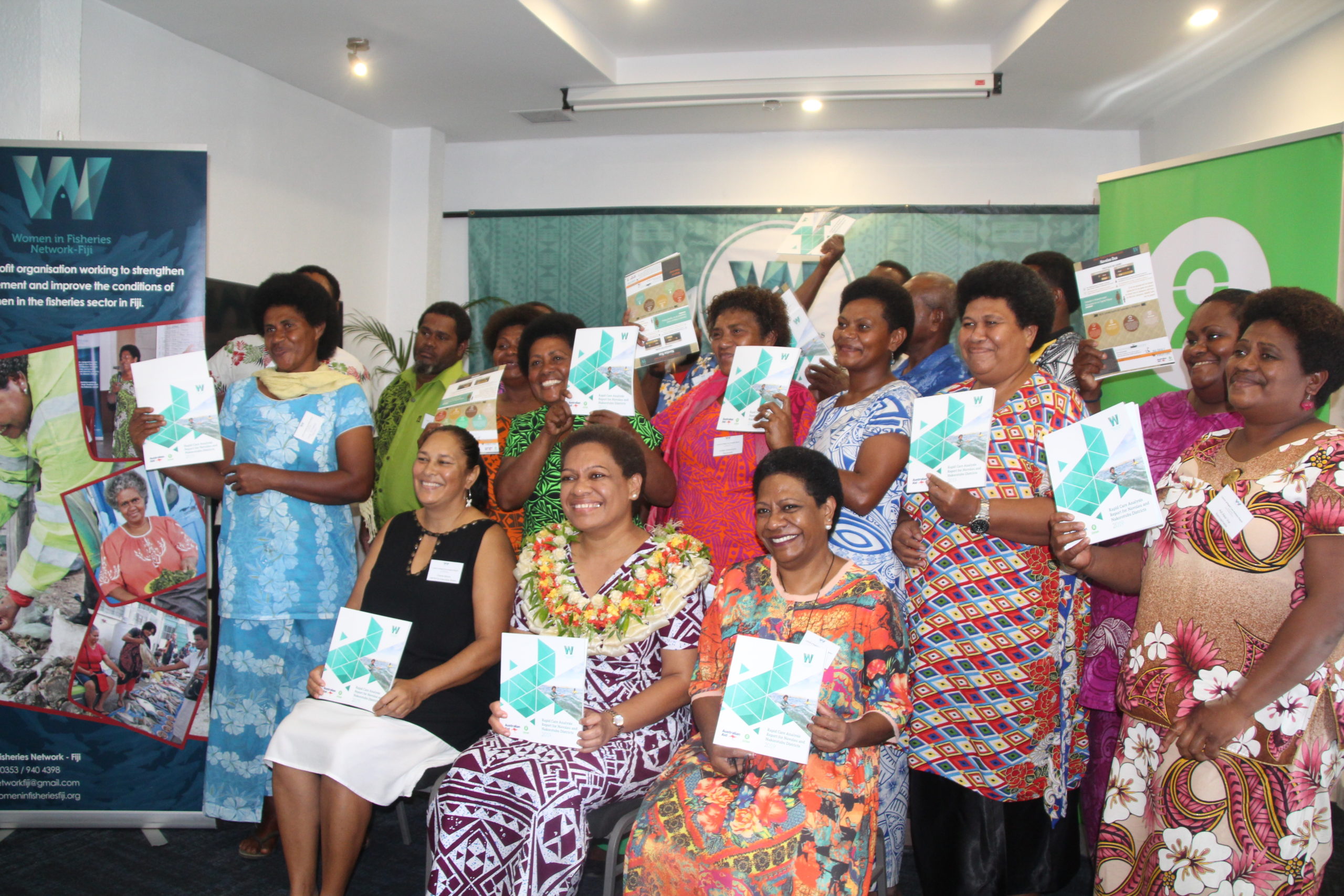Unpaid care work should not only be recognised but documented too, as it shares the economic burdens of families and communities across Fiji.
The Women in Fisheries Network-Fiji (WiFN-Fiji) made the call following the release of a Rapid Care Analysis (RCA) report documenting unpaid care and domestic work the districts of Navolau and Nakorotubu in the Ra province and looked at the opportunities for women in fisheries and practical solutions to sustain their families.
The analysis found and identified care work as caring for grandchildren and sick family members, looking after the extended family, harvesting sugarcane, fishing, gardening and helping with communal obligations.
One of these women is Sera Baleisasa of Namuimada who is dependent on sea grapes nama to help generate income for her family. She is one of those who has benefited from the support of WiFN-Fiji.
Baleisasa said through the WiFN-Fiji she has been able to sell nama at New World Supermarket at Damodar city with more returns in a day.
“I would like to thank WiFN-Fiji for their assistance, without them I would not be able to sell as much nama before. Selling nama at the supermarket is convenient because I get to receive the payment instantly,” Baleisasa said.
“The supermarket buys 10 kilograms of nama for $20 and by the end of the week I receive around $300.The network has helped me provide financially for my family and also would like to recommend women in other provinces to work with WiFN-Fiji.”
The RCA which was launched earlier today by Minister of Women, Children and Poverty Alleviation looked at achieving four key areas including exploring relationships of the care in the community; identify unpaid and paid work activities performed by women and men and create a rough estimate of average weekly time spent on each category of work by men and women; document care for women and men, girls and boys at a household level, changes in care and map care support services and infrastructure, identify and prioritise options for reducing and/or redistributing care work.
Minister Mereseini Vuniwaqa said COVID-19 is already intensifying underlying inequalities across sectors with women and girls expected to hit hardest through the economic crisis.
“Women in rural areas often spend up to 14 hours a day doing unpaid care work. Across the globe 42 per cent of women cannot have jobs because they are responsible for caring compared to the six percent of men,” Vuniwaqa said.
Prior COVID-19, Fiji’s labour force participation stands at 76 per cent for men and 37.4 percent for women. While the unemployment rate stands at 2.9 percent for men with women at 7.8 percent
The RCA report is also accessible on the WiFN-Fiji website.
——-
Women in Fisheries Network-Fiji https://womeninfisheriesfiji.org











